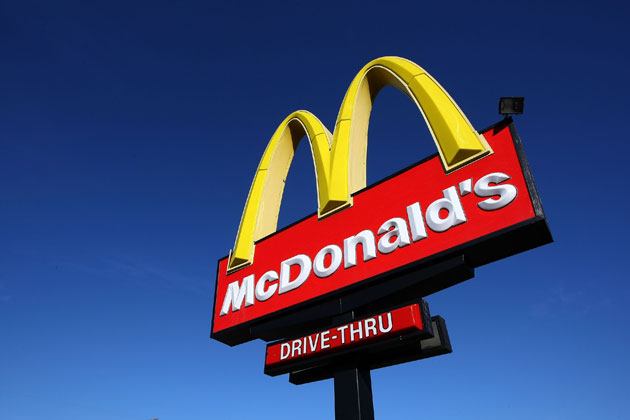Today, we are all connoisseurs of the entrepreneurial arc.
A comedy such as HBO’s “Silicon Valley” only works if the audience gets what it’s sending up. But if much is familiar about “The Founder”–the new movie about McDonald’s impresario Ray Kroc, who wasn’t a founder but took over the chain from the bedrock-moral brothers Dick and Mac McDonald –is familiar, it is also an instant classic of its type, hitting virtually every note on the startup story scale. Its telling of the six-decades old McDonald’s saga makes it the quintessential contemporary entrepreneurial tale.
Consider its elements:
The Eureka moment ➡ Every startup story begins with the recognition of opportunity: An entrepreneur spots something that mere mortals are too myopic to appreciate, and firecrackers burst across his retinas.
In “The Founder,” struggling salesman Ray Kroc (played by Michael Keaton) drives across country to a burger stand in San Bernadino to learn why the owners require eight of his multi-cup milkshake machines. As Kroc gazes in awe at the long lines and blissed-out customers, then tours the McDonald brothers’ UPS-efficient kitchen, the sizzle of meat on the grill mingles with the sizzle of potential in the air.
The problem and the solution ➡ If the Eureka moment is visceral, the revelation of the value proposition is intellectually thrilling. The concept’s creator relates how he’s shrewdly solved a problem and, in the process, created a product distinct from all others. The McDonald brothers (played by Nick Offerman and John Carroll Lynch) tell Kroc that–faced with financial failure–they started a process of radical paring.
First went the carhops. Instead of waiting to be served in their vehicles, customers would use a walk-up window. Next went most of the menu. The McDonalds retained only the items responsible for 80% of sales. Then went the plates and cutlery, replaced by paper wrappers. Finally went the wait. Unprecedented efficiencies delivered meals 30 seconds after ordering. (At this point, you’ll recognize any VCs in the audience by their ragged breathing.)
The quirky origin legend ➡ Startup stories–occurring when entrepreneurs are poor and scrappy and wrong about almost everything–are irresistibly colorful. The finest moments of “The Founder” belong to the McDonald brothers. We watch as they chalk layouts of their proposed new kitchen on the cement floor of an empty tennis court and force young employees to walk through the motions of food preparation, over and over for six hours, until it’s perfect. We see their opening night festivities besieged by flies, drawn by the smell of food and Hollywood-bright lights.
These are the stories that forge a company’s character. They are not Kroc’s stories, and therein lies the emptiness of his venture.
The sell-sell-sell montage ➡ Some startup stories amaze and amuse with the struggles of innovation. An engineer tears his hair before a screen or an inventor watches with dismay while her prototype repeatedly explodes or falls apart. Kroc invented nothing. What he did was take someone else’s invention and sell the hell out of it: to potential franchisees in synagogues and meeting rooms and VFW halls.
These scenes, delivered with swift cross-cuts, are shorthand for dizzying growth. Kroc’s aggressive, don’t-let-the-other-guy-get-a-word-in spiel is one of the few dated aspects of the film. But–largely because of Keaton’s performance–these are exhilarating scenes that radiate the persuasive energy of a tent revival.
The betrayal ➡ Entrepreneurs are idealists whose Platonic vision of their startups is steadily degraded by financial and market realities. Kroc is no idealist. But his most redeeming characteristic is bulldog loyalty to the McDonalds’ high standards, on everything from cleanliness to the number of pickles per patty.
Then, in one of the best temptation scenes since the Garden of Eden, the alluring wife of a Minneapolis franchisee explains to Kroc that the restaurants can save a fortune in electricity costs by switching from ice cream to powdered milk shakes. The siren sensuously stirs a packet of vanilla into her water glass. Kroc drinks and avers he can’t tell the difference.
Two thousand miles away, the McDonald brothers must have felt something walk across their graves.
The all-is-lost moment ➡ Probably some startups never stumble on hard times. But where’s the fun in that? Entrepreneurs must visit hell if we’re to appreciate their ultimate ascent into heaven. Growth-crazy Kroc chews through his capital and finds himself, angry and humiliated, begging a banker not to foreclose on his home.
This episode draws on another entrepreneurial chestnut: the dissolution of the neglected family. (Although Kroc’s the one who calls it quits, trading in his beleaguered wife for the milk-shake temptress.)
The what-business-are-you-in epiphany ➡ No entrepreneurial trope is more satisfying than the discovery that a founder’s struggles stem from a fundamental misapprehension of his own business. Harry Sonneborn, McDonald’s first president, explains to a down-to-his-last-nickel Kroc that the way to make money and raise capital is to buy up land in target markets and then lease it back to franchisees. You’re not in the food-service business, Sonneborn says. You’re in the real-estate business.
Whereupon Kroc and viewers smite their mental brows in unison.
The titan-of-industry exaltation ➡ The coda of any capitalist saga reveals the hero enjoying the fruits of his labors. Kroc at movie’s end is the cover boy for trade magazines; a sought-after interview subject and speaker; and owner of a palatial home. He is also the foul betrayer of the brilliant, earnest, unshakably decent McDonalds brothers, talking them into a handshake deal–on which he predictably reneges–to sell the business in return for a piece of the profits. It is in these final moments that all sympathy for Kroc evaporates, and he clearly emerges as a predator, red in tooth and claw.
Is it a happy ending?
For fans of “It’s a Wonderful Life,” no. But if you prefer “The Social Network”–enjoy.
Source: IncAsean
